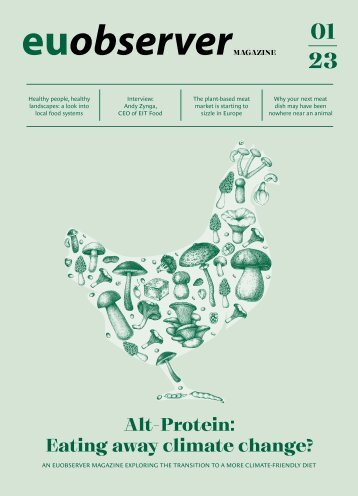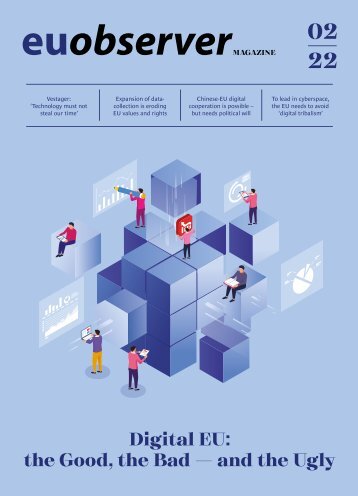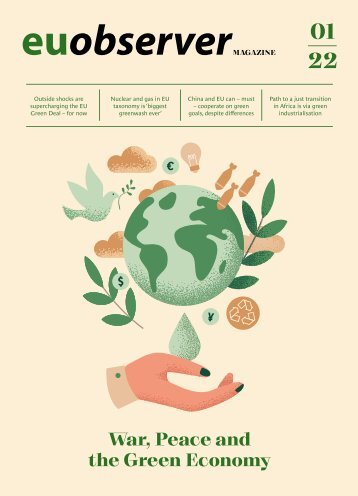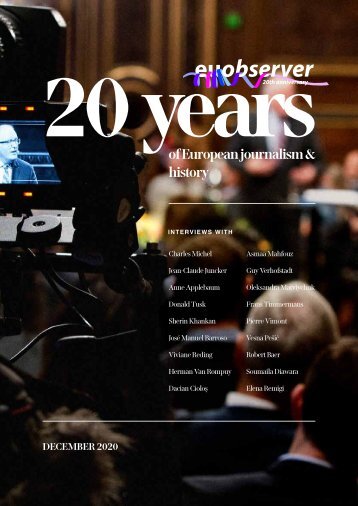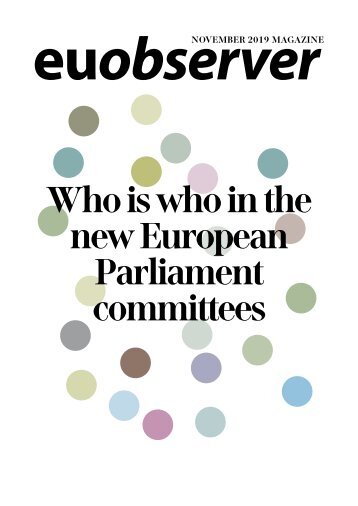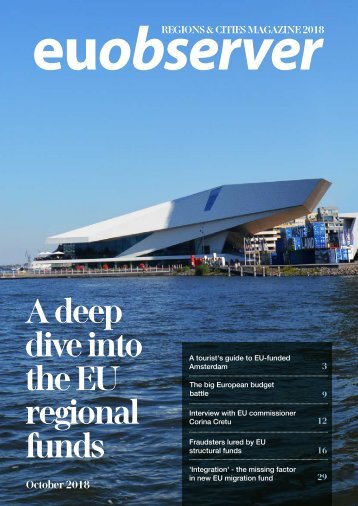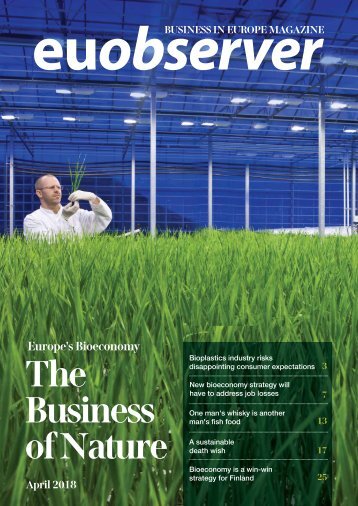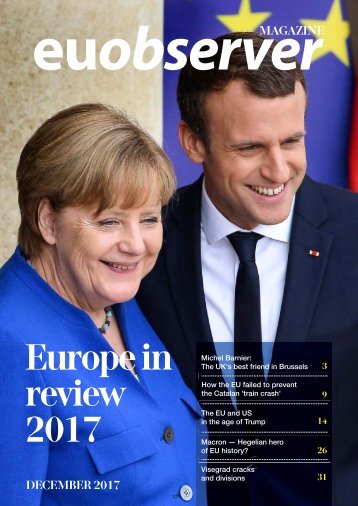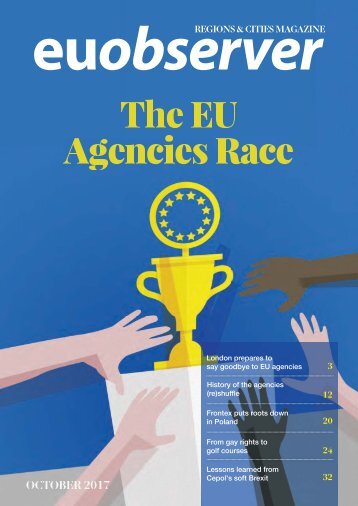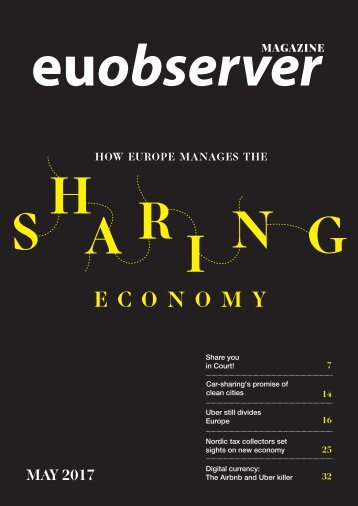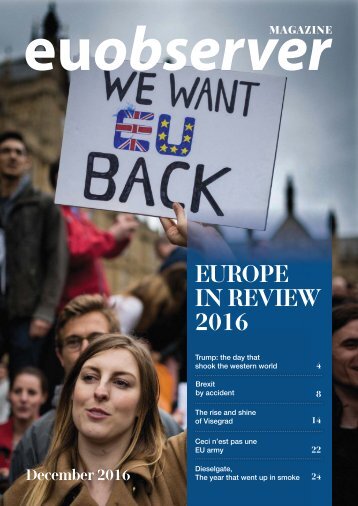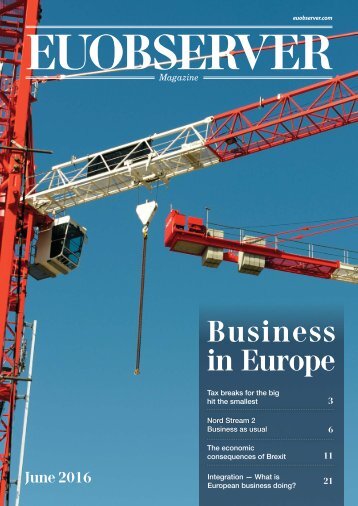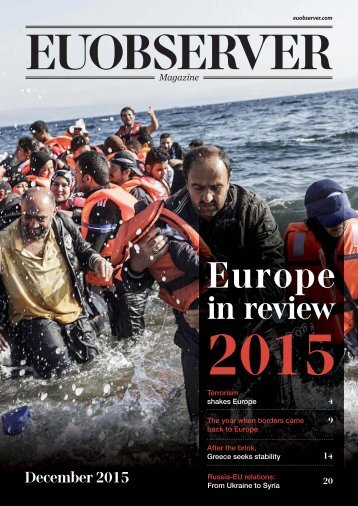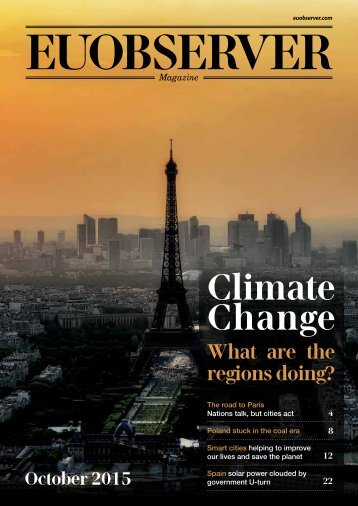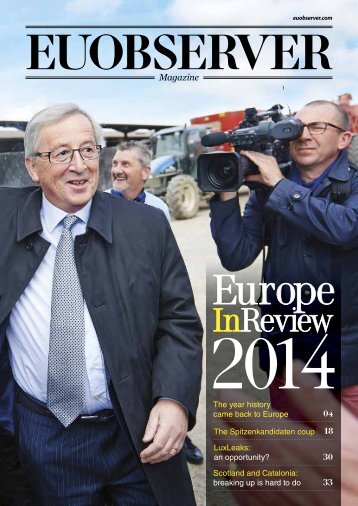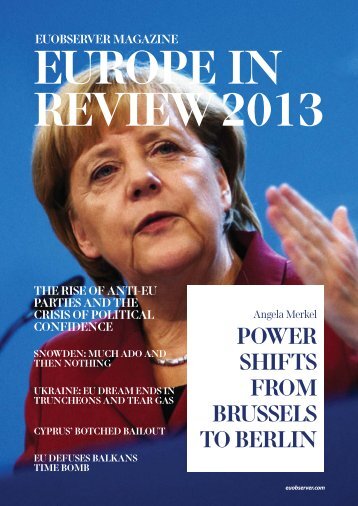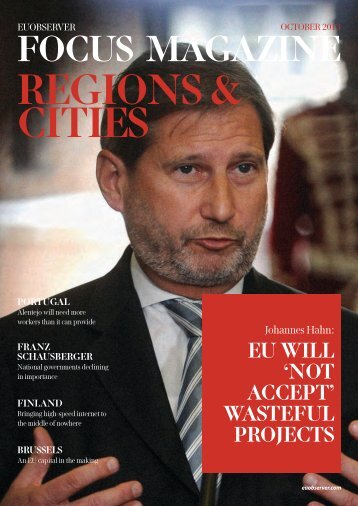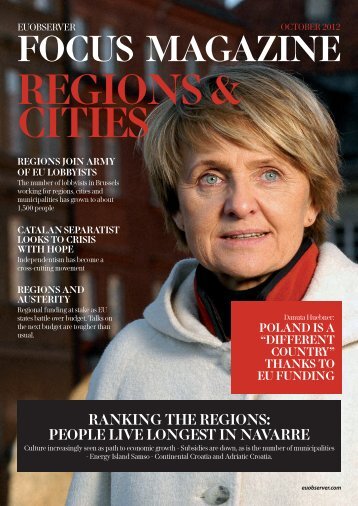Digital EU: the Good, the Bad — and the Ugly
- Text
- Strategic
- Cooperation
- Technologies
- Economy
- Innovation
- Asean
- Artificial
- Global
- European
- Digital
THIS COULD BE YOUR BEST
THIS COULD BE YOUR BEST TRADING DECISION Join Swissquote and take advantage of our special offer * for 6 months: • Free trading on the US markets • 4% interest on the dollar *Terms and conditions apply. swissquote.lu/OfferEU ‘Digital EU’: the Good, the Bad — and the Ugly BY SHADA ISLAM The European Union has impressive digital ambitions and an equally impressive array of initiatives, proposals, directives and regulations, all designed to make the bloc ‘fit for the digital age’. And there’s much to recommend in the EU plans. As the bloc underlines, the digital transition should certainly work for all, put people first, and open up new opportunities for business. Artificial Intelligence (AI) must be developed in ways that respect people’s rights and also earn their trust. Online platforms must act in a responsible manner. Digital solutions are also key to fighting climate change, achieving a green transition and they can help to foster an open and democratic society. As illustrated by the expansion of the EU’s GDPR directive (which stands for General Data Protection Regulation), there’s also much to commend in the EU’s bid to become a global trendsetter for online norms, and a global role-model for the digital economy. By-and-large, countries in the Global South welcome EU support for their efforts to go digital and develop global standards. That is the good side of digital Europe. It reflects ways in which the EU has a positive impact on both domestic digital developments and on the wider technological transformations taking place across the world. Walking the EU’s good talk can be a challenge, however. And that’s where dangers lurk. The contributions in this magazine are not intended to provide a fully-comprehensive, objective guide to help readers navigate the ups and downs of digital Europe. Because that’s the job of EU institutions themselves. Our publication does provide important insights into the EU’s ‘digital jungle’, and there is a handy dictionary of key tech jargon and acronyms, to help us find our way without getting lost among the trees. In a frank behind-the-scenes interview, European Union Commission vice-president Margrethe Vestager tells us that in addition to battling the world’s digital giants, she also worries about a future where technology takes even more control of our lives. We look at the pros and cons of the ways in which Artificial Intelligence is taking over our lives — and the big battles ahead on regulating (at least some) aspects of AI. There’s an attempt also to define the real focus of the EU’s quest for so-called ‘digital strategic autonomy’. As editor, I am keen on exploring some of the untold stories of just how this rapidly transforming digital world is impacting on EU values, on migration policy, and how many of the EU’s partners look at digital Europe. Here too, there is bad news and good news. The EU is trampling on its own values and peoples’ right-to-privacy and data protection as it expands its collection of data in areas such as migration, according to the EU’s own data-protection advisor. Our article on ‘Digital Africa’ points out that despite all the talk of building an “equal” EU-African partnership, the EU’s colonial mindset prevents it from understanding – and investing in – Africa’s ongoing impressive digital transformation. Still, despite their own remarkable digital achievements, African states, plus China, and countries in the Association of Southeast Asian Nations (ASEAN) are hoping to forge stronger digital partnerships with the EU. As one of our authors points out, it is now up to the EU to respond to such initiatives by going beyond “digital tribalism” and work to expand relations with both like-minded and “unlike-minded” states. Our digital world is expanding our horizons every day, while we strive to strike the right balance between being online and offline, and reflect on the ‘correct’ social platform to use to communicate with friends and family and our new ‘digital friends’: the networks we have built with people who share – or don’t share - our concerns across the globe. Technology helped us to live and work even as the pandemic forced us to stay home. It is now helping us find a better ‘work-life balance’ between working from the office and working from home. Yet we are also spied on, manipulated and bullied online. Misinformation and disinformation thrive in the amorphous digital ‘cloud’, impacting on elections and trying to spread hate. The EU is right to try and bring some order into the digital world. But while doing so it must not forget its values. All investments carry a degree of risk. Swissquote Bank Europe SA – RCS B78729. Bank licensed in Luxembourg under supervision of the CSSF. 3
- Page 1: MAGAZINE 02 22 Vestager: ‘Technol
- Page 6: ‘DIGITAL EU’: THE GOOD, THE BAD
- Page 10: DIGITAL INNOVATION ‘DIGITAL EU’
- Page 14: DIGITAL INNOVATION As Artificial In
- Page 18: DIGITAL INNOVATION ‘DIGITAL EU’
- Page 22: DIGITAL INNOVATION ‘DIGITAL EU’
- Page 26: DIGITAL INNOVATION Stakeholder Arti
- Page 30: DIGITAL INNOVATION ‘DIGITAL EU’
- Page 34: DIGITAL INNOVATION ‘DIGITAL EU’
- Page 38: DIGITAL INNOVATION ‘DIGITAL EU’
- Page 42: DIGITAL INNOVATION ‘DIGITAL EU’
- Page 46: ‘DIGITAL EU’: THE GOOD, THE BAD
- Page 50: An A-Z glossary of digital and tech
Inappropriate
Loading...
Mail this publication
Loading...
Embed
Loading...

